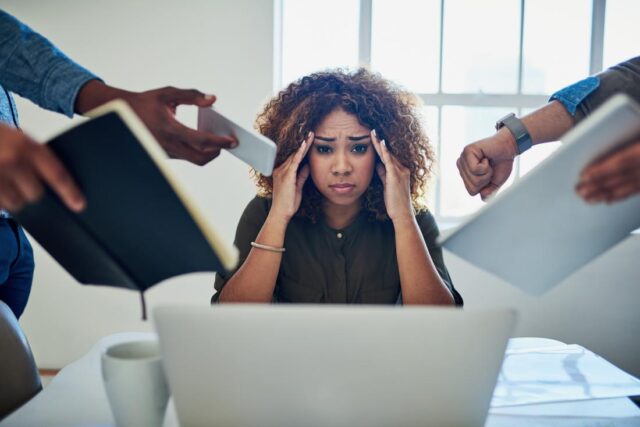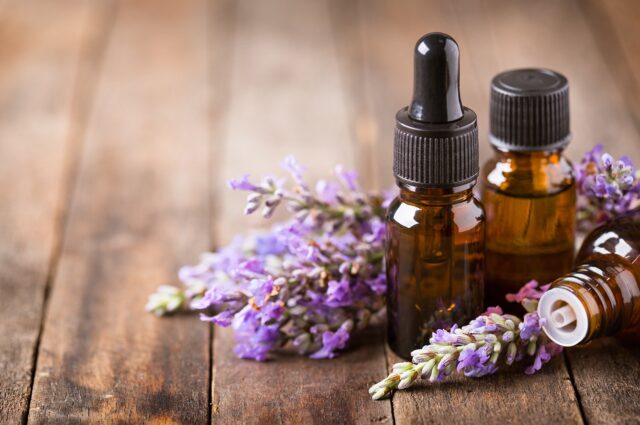
Stress is something that everyone deals with every day, and it’s actually a normal part of life. Unfortunately, many people experience chronic stress and this has a negative impact on health.
In the United States alone, about 70% of adults stated that they feel stressed every day. Stress usually occurs on the job, but it can also occur in the home, at school, while driving through traffic, and even when shopping at the grocery store.
Fortunately, there are several ways to deal with stress, and there are certain methods that will work better than others for different people and different situations.
1. Aromatherapy

Though more studies need to be done to get accurate results on its effectiveness, aromatherapy has been said to reduce feelings of stress and anxiety by promoting feelings of relaxation.
Aromatherapy is used all over the world, and even in relaxing places such as spas. The idea is that certain essential oils promote feelings of ease and some can even treat serious diseases.
Keep in mind that aromatherapy isn’t for everyone (i.e., pregnant women, those with respiratory issues or skin sensitivities), but it is generally safe for those without a preexisting condition.
The oils are very potent and should not be ingested, but should be diluted with water or a carrier oil (e.g., coconut oil, olive oil, sweet almond oil) before use.
Common essential oils used in aromatherapy include:
- Bergamot
- Chamomile
- Eucalyptus
- Frankincense
- Lavender
- Lemon
- Rose
2. Breathing Techniques
As simple as it sounds, deep breathing techniques have several benefits when it comes to relieving stress and anxiety.
Certain types of stress can activate the sympathetic nervous system, causing your heart to beat faster, your breathing to become heavier and quicker, and blood vessels to become restricted.
Deep breathing forces you to focus on your breathing, inhaling slowly and exhaling even slower, which calms your heart rate. Your focus should be on controlling your breath and slowing it down to get your heart rate to slow down.
This is effective for both stress and anxiety.
3. Creative Activities and Hobbies

Creative outlets have long been known to reduce feelings of stress. Activities such as art, music, and writing are ways to express any negative feelings and emotions that have built up over time.
Being creative allows you to express emotions you may not be able to put into words, which is why therapies such as art therapy and music therapy are becoming increasingly popular. When it comes to writing, jotting down your feelings in a notebook or journal can be especially helpful, and so can writing down what you’re thankful for.
In addition to creative activities, it’s also helpful to enjoy some of your favorite hobbies, such as reading, gardening, fishing, or any other relaxing activity that may not be considered a creative activity.
When you’re feeling stressed, it’s important to take the time to do the things you love doing.
4. Exercise and Physical Activity
We know that being stressed can cause physiological symptoms such as a rapid heart rate and rapid, shallow breathing, so it seems since exercising can cause those same symptoms, it should be avoided when stressed— which actually couldn’t be farther from the truth.
As mentioned before, stress activates the sympathetic nervous system to evoke these responses, while exercise activates the cardiovascular system, which benefits both physical and mental health.
Exercise is a great way to release any built-up tension that tends to happen when we’re stressed. The good news is that you don’t have to hit the gym every day after work— you can get adequate physical activity by doing something you enjoy, such as walking, jogging, yoga, pilates, and even dancing.
5. Focus on Nutrition

When we’re stressed, it’s easy to go straight to fast food, junk food, processed foods, and other foods that are unhealthy for us.
These can actually make us feel worse in addition to the stress we’re already feeling. Even the caffeine in coffee, green tea, and caffeinated drinks can increase anxiety, though these are the drinks we gravitate towards when we’re stressed. However, coffee and green tea can be healthy and stress-relieving in moderation, in some people.
Certain supplements are also effective in reducing stress and calming feelings of anxiety.
These include:
- Ashwagandha, an herb used in Ayurvedic medicine.
- Lemon balm, used for treating anxiety.
- Omega-3 fatty acids, found in fatty fish and oils can also help reduce feelings of anxiety.
- Valerian root, used to promote sleep.
Also, eating a rich, diverse, and balanced diet full of essential vitamins and minerals can help keep all organs functioning properly, especially the brain.
6 Get Social
Another reason we can become stressed is that we’ve spent too much time at work, neglecting our family and friends. Having a strong social connection to others can help you to get through stressful times.
Hanging around the people you care about releases the natural stress reliever, oxytocin. Spending time with family and friends can also increase laughter, which is known to relax your muscles and relieve your stress response.
7. Pet/Animal Therapy

Studies have shown that interacting with your pet and other friendly animals can positively impact our health. Being around animals can release endorphins, specifically oxytocin, which promotes positive feelings.
Even the act of petting automatically relaxes the body. Pet therapy also decreases anxiety, provides comfort, reduces loneliness and feelings of isolation, and encourages communication.
8. Stress Toys
You’ve probably heard of stress balls, and wonder if they actually work. Studies have shown that just by squeezing a ball over and over again, you release tension built up from stress. Because your hands are kept busy with this repetitive movement, all of your stress is directed towards the ball instead of going into your neck and shoulders, or other parts of your body.
Check out 4allpromos.com to browse through inexpensive and personalized stress balls and toys.
As noted in the beginning, all of these methods may not be effective for everyone, so it’s important to find which method works best for you. Also, consult your doctor if you’re experiencing severe physical pain from stress.












